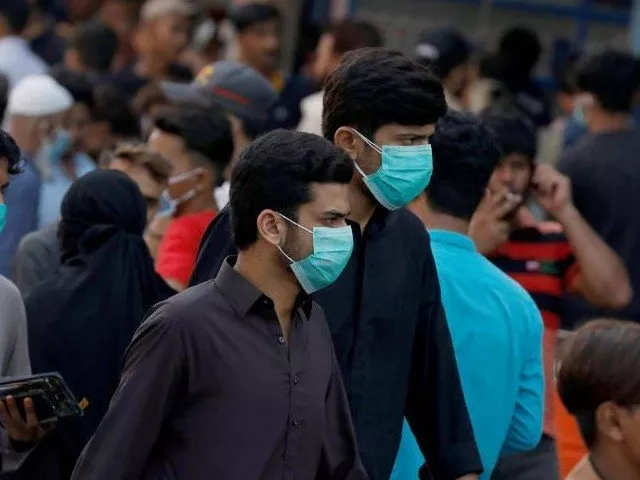Smart lockdown SOPs: How to stay safe during pandemic
Health experts fear the spread of deadly virus could gradually intensify in Pakistan
The coronavirus outbreak in Pakistan has now reached a critical stage as the cases crossed 190,000 with 3,700 deaths. The experts fear that the spread of the deadly virus could further gain momentum by July end.Neighbouring China, with the government's timely and well-coordinated efforts, successfully controlled the disease and flattened the curve within a very short period of time through comprehensive public participation and by using non-medical means.
The government of Pakistan, on the other hand, has adopted a balanced strategy of smart lockdown to curb the spread as well as to keep economic activities running smoothly.
Two surgeons in K-P succumb to coronavirus
"As responsible citizens, we desperately need to understand and fully implement the purpose of the smart lockdown so that we can stop the spread of the disease," National Command and Operations Centre (NCOC) officials said on Wednesday, calling it a social, national and religious duty of the nation.
Purpose of smart lockdown
The officials said that smart lockdown not only prevents further spread of Covid-19 by limiting the population in known hotspots but also allows business activities to continue in other localities.
Instruction for citizens
They said that the administration would give 24 to 48 hour notice to locals before imposing the targeted lockdown. "Residents can complete their necessary preparations and store the required amount of necessary items. Public and private employees can inform their offices that they are legally bound to take leave."
The officials urged citizens to avoid moving to other areas when they receive a smart lockdown notification."Stay confined inside your home and avoid going out except in an emergency. If there is a need to get out due to compulsion or emergency, a young and healthy person in the house should go out wearing a mask with precautionary measures and maintain social distance. Under no circumstances should you leave the lockdown area," they maintained.
People who have to come out of the home, the officials said, should not go outside the designated hotspot limits, urging to take special care of elderly people at home, pregnant women, high blood pressure and diabetes patients.
The officials warned that the shopkeepers should ensure that they and their customers wear masks, otherwise they may be prosecuted.
According to the SOPs given by NCOC officials, in areas with smart lockdown, only staff should offer prayers inside mosques. The rest of the people should offer prayers at homes. "The imam of the mosque or prayer caller should tell people to adopt precautionary measures through loudspeaker several times during the day."
The officials urged the massed to ensure cooperation with local authorities in their respective areas. "Contact your local volunteer on the helpline 1166 if you have any symptoms of Covid-19," they said.
The officials also urged masses to cooperate with the law enforcement forces in the lockdown areas and avoid altercation with the security personnel.
Beijing officials declare new coronavirus outbreak 'under control'
They said that OPDs in local hospitals will be closed during smart lockdown, urging people to not go to the hospitals for routine checkups. However, in case of an emergency, the facility to go to the hospital will be available.
"If symptoms of Covid-19 appear, avoid home remedies and self-diagnosis and contact the relevant medical institution and follow their instructions," they said.
NCOC officials also advised people against listening to negative propaganda on social media about the pandemic and rely only on credible government information.


COMMENTS
Comments are moderated and generally will be posted if they are on-topic and not abusive.
For more information, please see our Comments FAQ